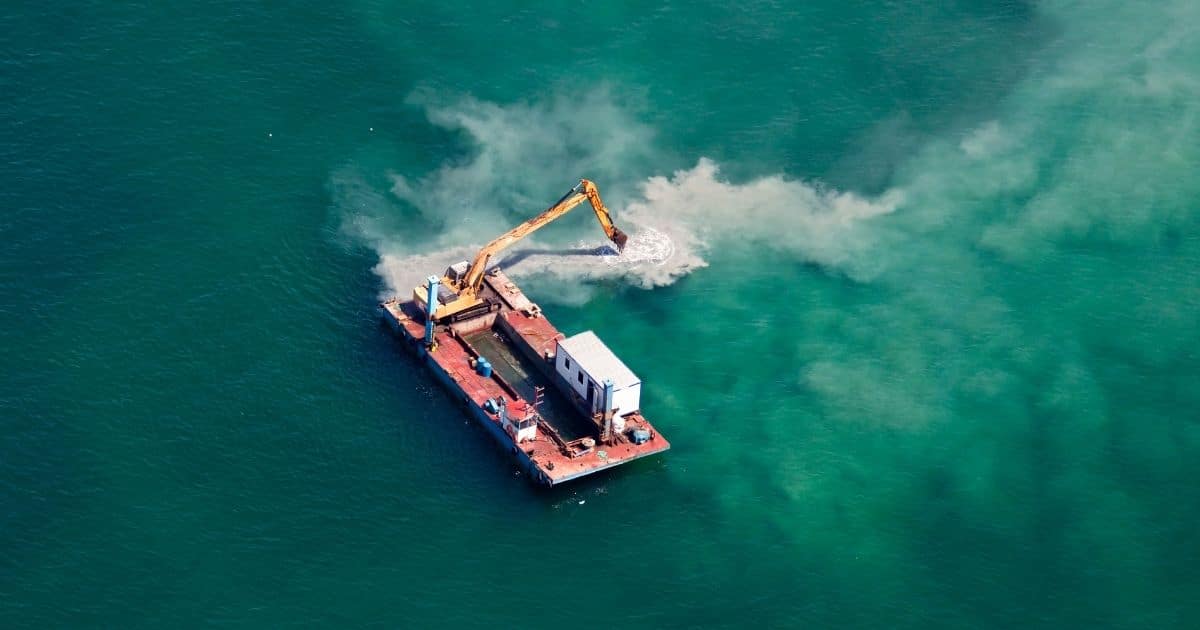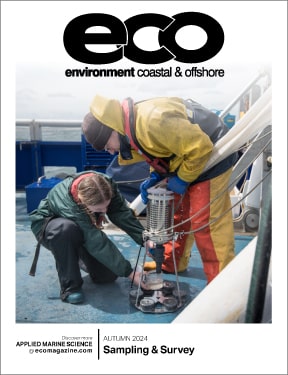The report ‘Financing of Sustainable Marine and Freshwater Infrastructure: A joint study to explore financing of green coastal, river and port projects’, developed by the Central Dredging Association (CEDA), the International Association of Dredging Companies (IADC) and Vital Ports, with contributions from Swiss Re and B Capital Partners was presented at the Sustainable Development Impact Summit organized by the World Economic Forum. Against the backdrop of climate change, energy transition and loss of biodiversity, together with the fact that there are limited public budgets, means there is a bigger role available for private capital to play in bridging the infrastructure funding gap. The report is based on the findings of the mutual working group, which discusses nine case studies. The main conclusion is that sustainable waterborne infrastructure solutions are available, have been tested and are economically viable. Private capital could help to accelerate the uptake of such solutions. The report is an important first step realising this. The report will be presented to the dredging community at the virtual CEDA Dredging Days 2021, on 29 September.
“Marine and Freshwater Infrastructure is the collection of waterborne works at coastlines, estuaries, rivers, canals and in port areas. In general, such works provide flood protection or enable port development, urban development and navigability of waterways. In other cases these works serve to protect or restore nature and recreational areas”, says Arjan Hijdra, Managing Director of Vital Ports and one of authors to the report. “Both the Sustainable Marine and Freshwater Infrastructure sector and the Financial sector seek to scale up their green portfolio and it is quite obvious that synergy can be found in cooperation. However, both sectors are mutually unfamiliar with each other’s environment which hinders to capture this synergy right away. We believe that this dedicated report could help further engagement between these two sectors.”
About the Report
Together with experts from B Capital Partners and Swiss Re, CEDA, IADC and Vital Ports explored what is needed in order to improve the connection between green-labelled funds and sustainable waterborne infrastructure projects. One main conclusion is the need to clarify sustainable concepts and associated financial structures in order to introduce the topic to both the financial sector and the dredging community. But also to develop ideas on how to bring this to mainstream infrastructure investment asset classes. The report provides content for further dialogue to foster the uptake of green marine and freshwater concepts by private investors.
Given the size and magnitude of the challenges and the amount of sustainable marine and freshwater works that are needed to cope with these challenges, it is expected that more avenues will open up to enable such projects. This means more capital from private and institutional investors can be utilised. To facilitate this, a number of key elements have been identified:
- Sponsors and capital suppliers need to work together in upfront project screening;
- Certification of green projects might be instrumental in moving forward;
- Development of standard legal and financial frameworks;
- Reporting tools and methodologies need harmonisation and capture ESG benefits;
- The insurance industry as a ‘de-risker’ can be transformational in providing predictable cash flows and establishing a longer-term investment framework; and
- Upward potential through growing markets in carbon trade sequestration, in biodiversity offsets and habitat banking.
“Our mission is to make the world more resilient. We believe that the insurance industry can play a major role in supporting sustainable marine and freshwater infrastructure to encourage more innovative projects and enable private investments” said Christian Wertli, Head Infrastructure Solutions at Swiss Re. “Private capital requires standard, stable legal frameworks to ensure appropriate risk allocation and a safety net for proper business conduct. All of this is urgent, since more coastal protections are needed, due to rising sea levels because of climate change,” adds Paolo Alemanni, Managing Partner at B Capital Partners.
Some background
The dredging sector has an important role in major coastal, port and river projects around the world. This sector includes project owners, dredging companies, consultants and research institutes. Accustomed to vulnerable environments, and to addressing a myriad of climate, ecosystem or other sustainability challenges, the dredging community pushed hard to come up with new techniques and solutions. And they did. A number of important philosophies and concepts, such as Building with Nature (EcoShape), Engineering with Nature (U.S. Army Corps of Engineers), Working with Nature (PIANC) and Dredging for Sustainable Infrastructure (CEDA/IADC) already play a significant role in many marine and freshwater infrastructure projects. As these sustainable solutions are proven in practice, the challenge ahead lies in scaling and replicating, and therefore financing. Private Financing could help governments around the world, many of them committed to the 2015 Paris Agreement and the UN Sustainable Development Goals (SDG’s), to implement projects fitting their local or national needs. With limited public budgets, the investment gap in Marine and Freshwater Infrastructure leaves a critical and supporting role for private capital to play in bridging the gap.
More information
Click here to download the report free of charge.

